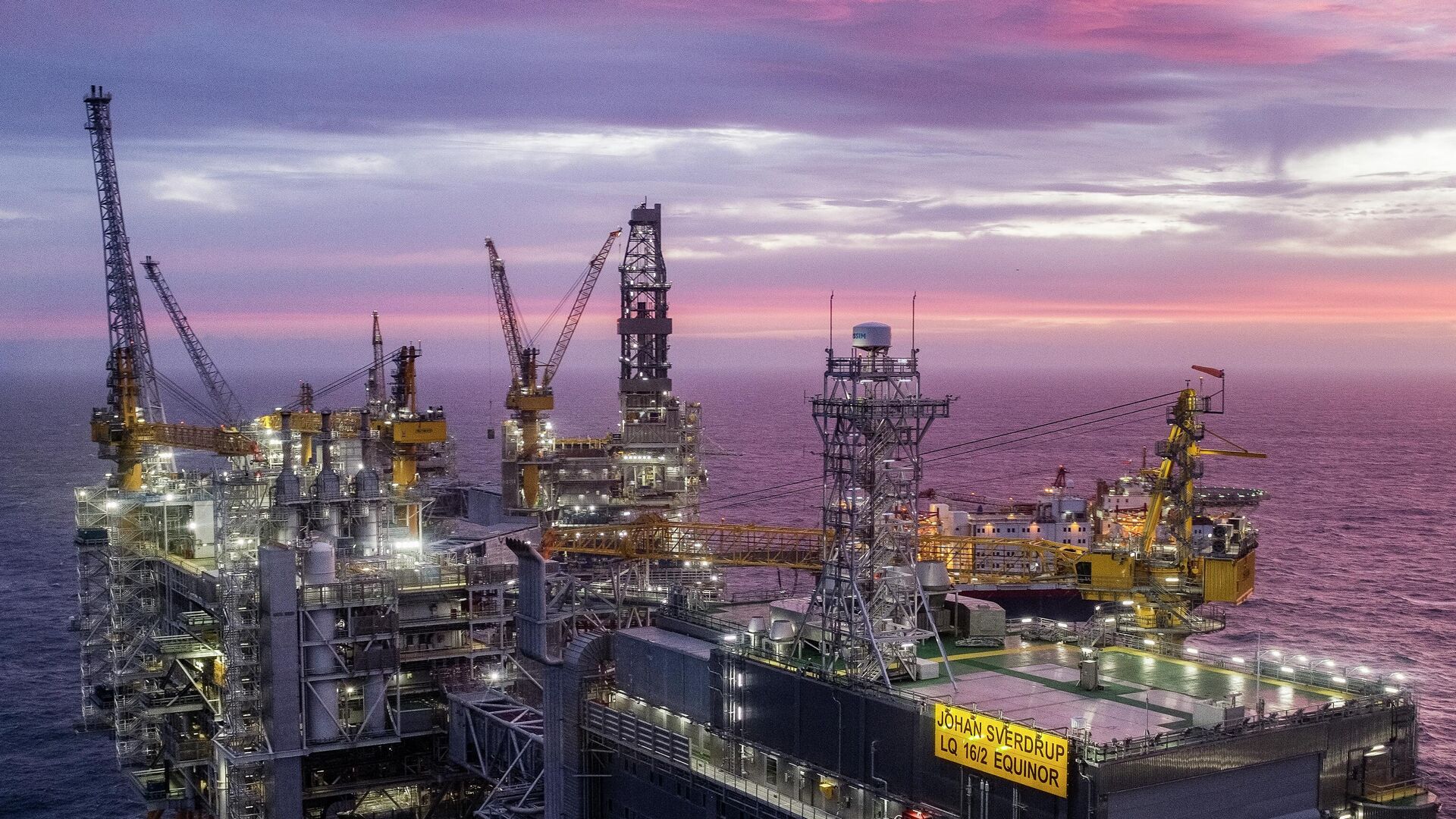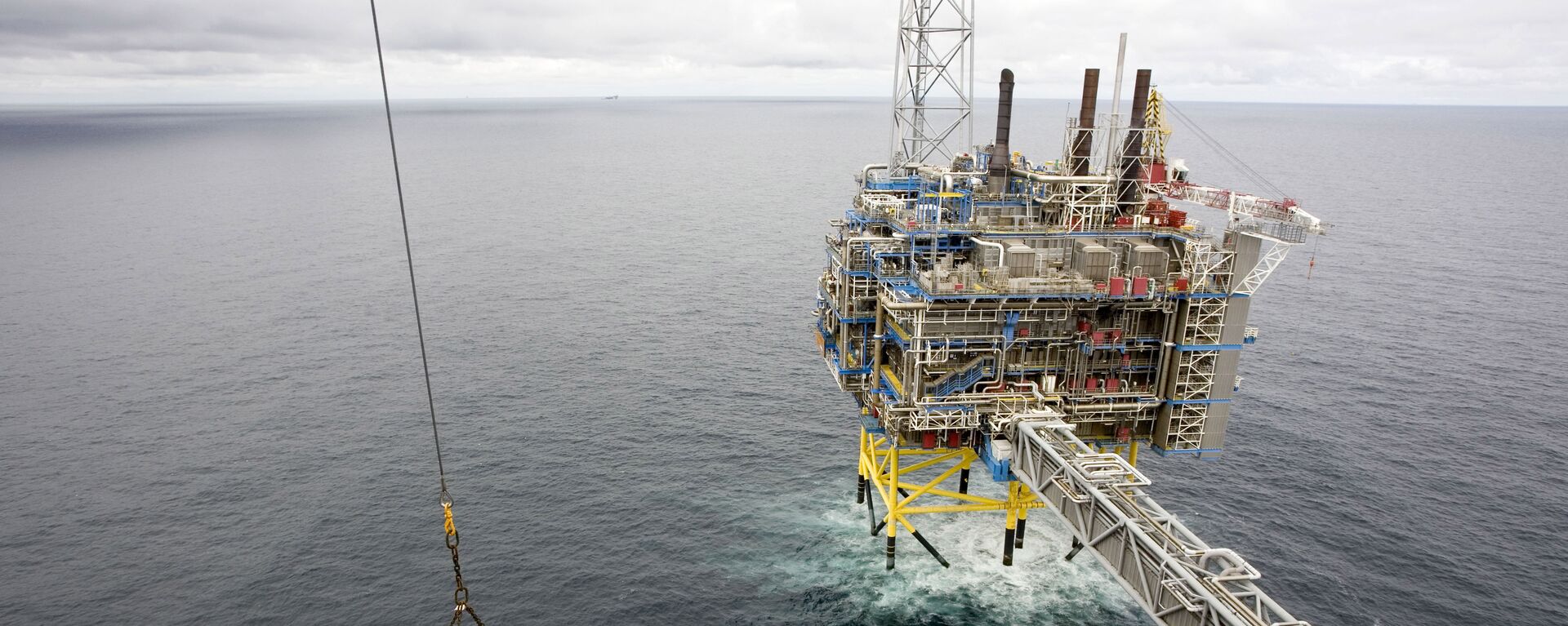https://sputnikglobe.com/20220705/no-plan-c-europe-facing-trouble-as-norways-oil-gas-production-declining-1096986762.html
No Plan C: Europe Facing Trouble as Norway's Oil, Gas Production Declining
No Plan C: Europe Facing Trouble as Norway's Oil, Gas Production Declining
Sputnik International
BRUSSELS (Sputnik) - The strike by Norwegian offshore oil and gas workers is worrying, but the real problem is that the country's energy production has reached... 05.07.2022, Sputnik International
2022-07-05T15:27+0000
2022-07-05T15:27+0000
2022-08-06T08:33+0000
europe
norway
energy
oil
gas
sanctions
energy crisis in europe
https://cdn1.img.sputnikglobe.com/img/07e6/07/05/1096986615_0:0:3073:1728_1920x0_80_0_0_357f2ba9cc0976562610c52f10261ef6.jpg
On Tuesday night, Norwegian oil and gas workers went on strike demanding higher wages. According to the Norwegian Oil and Gas Association, it might lose up to 56% of its gas exports due to the strike.The expert also noted that the matter of competition between the country's three major unions: two unions have made agreed to a deal with energy companies, while a third union has gone on strike. He thinks that Europe can face other disruptions because it is too tempting for trade unions to use the energy crisis to make salary demands."Norway is indeed a limited plan B already, but there is no real plan C," Ernst concluded, noting that total dependence on Russia for oil and gas as well as the self-imposed reduction of fossil fuels is now taking its toll.In June, the European Union presented the sixth package of sanctions against Moscow, including a gradual phase-out of Russian oil. The new package will affect only oil deliveries by sea, while oil coming through the Druzhba pipeline is not subject to restrictions.Russian President Vladimir Putin said in March that weakening Russia was a long-term strategy of the West, adding that its sanctions had dealt a serious blow to the entire global economy.
https://sputnikglobe.com/20220705/norwegian-oil-and-gas-workers-strike-may-further-imperil-europes-energy-supplies-1096959681.html
norway
Sputnik International
feedback@sputniknews.com
+74956456601
MIA „Rossiya Segodnya“
2022
Sputnik International
feedback@sputniknews.com
+74956456601
MIA „Rossiya Segodnya“
News
en_EN
Sputnik International
feedback@sputniknews.com
+74956456601
MIA „Rossiya Segodnya“
Sputnik International
feedback@sputniknews.com
+74956456601
MIA „Rossiya Segodnya“
europe, norway, energy, oil, gas, sanctions
europe, norway, energy, oil, gas, sanctions
No Plan C: Europe Facing Trouble as Norway's Oil, Gas Production Declining
15:27 GMT 05.07.2022 (Updated: 08:33 GMT 06.08.2022) BRUSSELS (Sputnik) - The strike by Norwegian offshore oil and gas workers is worrying, but the real problem is that the country's energy production has reached its peak and is now in decline, which spells trouble for Europe, Damien Ernst, an energy expert and engineering professor at the University of Liege, told Sputnik.
On Tuesday night, Norwegian oil and gas workers went on strike demanding higher wages. According to the Norwegian Oil and Gas Association, it might lose up to 56% of its gas exports due to the strike.
"This strike on the oil platforms off the coast of Norway comes as a surprise, but Norway is and remains a reliable supplier of both oil and gas. The problem for Europe is that Norway’s production has already peaked and is inexorably declining. So the EU can’t expect Norway to increase its production to compensate for the decline of Russian deliveries, self-imposed by the EU itself," Ernst said.
The expert also noted that the matter of competition between the country's three major unions: two unions have made agreed to a deal with energy companies, while a third union has gone on strike. He thinks that Europe can face other disruptions because it is too tempting for trade unions to use the energy crisis to make salary demands.
"Norway is indeed a limited plan B already, but there is no real plan C," Ernst concluded, noting that total dependence on Russia for oil and gas as well as the self-imposed reduction of fossil fuels is now taking its toll.
In June, the European Union presented the sixth package of sanctions against Moscow, including a gradual phase-out of Russian oil. The new package will affect only oil deliveries by sea, while oil coming through the Druzhba pipeline is not subject to restrictions.
Russian President Vladimir Putin said in March that weakening Russia was a long-term strategy of the West, adding that its sanctions had dealt a serious blow to the entire global economy.



